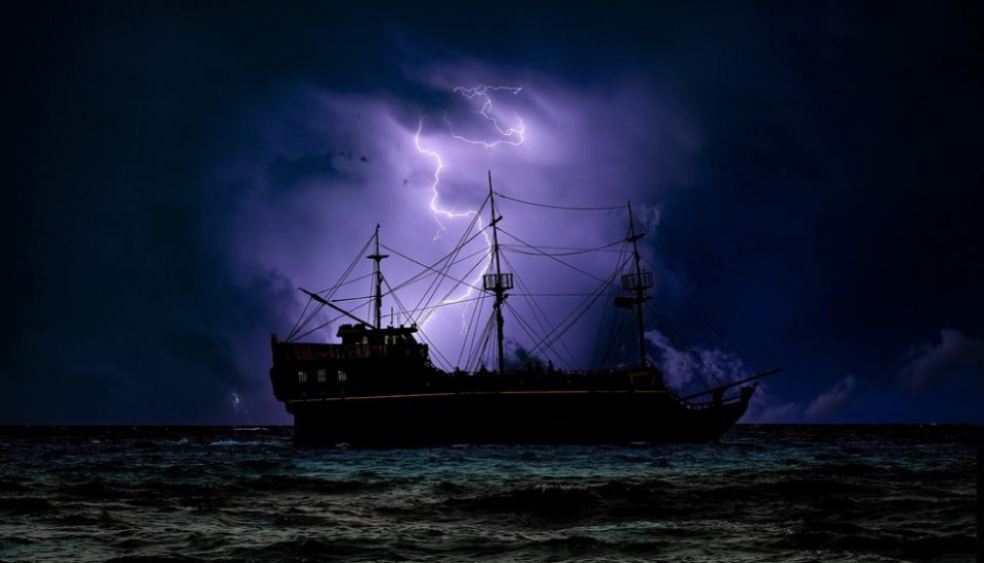
Revisiting The Pirates of Devon
When you think of pirates, Cornwall springs to mind.
The Pirates of Penzance, all those smuggling coves and rich folklore add up to make Cornwall a land of piracy and intrigue, but the truth is Devon has got much the same history. It might not be quite as well known, but our smugglers and pirates here in Devon should be just as famous.
Pirates have become very popular over the last few years because of their depiction in popular media. Of course, Pirates of the Caribbean helped; the film series was a huge success. There’s also a new HBO show called Our Flag Means Death which has become popular. Video gaming also flies the flag for piracy with Assassin’s Creed Black Flag one of multiple titles satisfying the thirst for plunder. Even online slot provider Foxy Bingo has pirate-themed titles, including 7 Seas Pirates and Pirate Plunder, which trade heavily on pirate themes. That continues through iOS and Android, with Pirate Tales: Battle for Treasure and Pirate Kings leaning on imagery and themes.
All that influence proves that pirates are incredibly popular, certainly more so than they were back in the day! You might not know that much of our Devon coastline has a pirate and smuggler history worth being aware of.
The image of Devon pirates might not quite be that of Captain Jack Sparrow, but they were no less dangerous. In Beer, close to Sidmouth, an infamous gang of smugglers and pirates found a base. Led by Jack Rattenbury, who was known as the Rob Roy of the West, he turned to privateering (a posh name for piracy) in his mid-teens. He was also a fisherman and eventually wrote his memoirs with the help of the local clergy. Unlike many pirates of the age, he lived to 65 and is buried at Branscombe, which is today a thriving rural community.
Today, you can see the entrance to the cave said to have been one of his smuggling holes; Beer Quarry Caves is between Branscombe and Beer Head, located in the area known as the Hooken Undercliff. Legend has it that the cave leads straight to Branscombe church.
Heading north into Devon, we come to a rich history of piracy and smuggling that would make Captain Jack proud. William Marsh, also known as William de Marisco, built a castle on Lundy Island and used it as his base for plundering ships entering the Bristol Channel. In 1242, long before the so-called Golden Age of Piracy, he was involved in a plot to assassinate King Henry III, ultimately leading to execution for treason.
Samuel Bellamy, also known as Black Sam, was born in Devon and was known as one of the world’s most wealthy pirates. He left our county in 1715 and headed for Florida to locate a sunken treasure fleet. He then went to the Bahamas, where all the pirating action happened! He died after taking the Whydah Gally, a slave trade ship, which sank in 1717 and never returned to his home county.
John Nutt left Devon in 1620, taking to piracy shortly after. He was a pirate for three years before tiring the life and expressing a desire to come home. He requested a royal pardon from Vice Admiral of Devon John Eliot, who swiftly agreed in exchange for a £500 ‘bond’. Once he set foot back in Devon, Eliot had him arrested and convicted for piracy! Nutt has the last laugh; George Calvert, with whom Nutt had spent time in Newfoundland, pardoned him, gave him £100 compensation and instead imprisoned Eliot.
Nutt soon returned to piracy; in 1632, he was working with other pirates in Irish waters and may even have made Lundy Island his base with his brother, Robert Nutt. Whatever happened, he is a perfect example of one of Devon’s famous pirates and smugglers. There are plenty more tales to be found if you travel our coastline, and these names are proof you don’t have to stray into Cornwall to find pirating history that’s not gleaned from TV or a video game.











